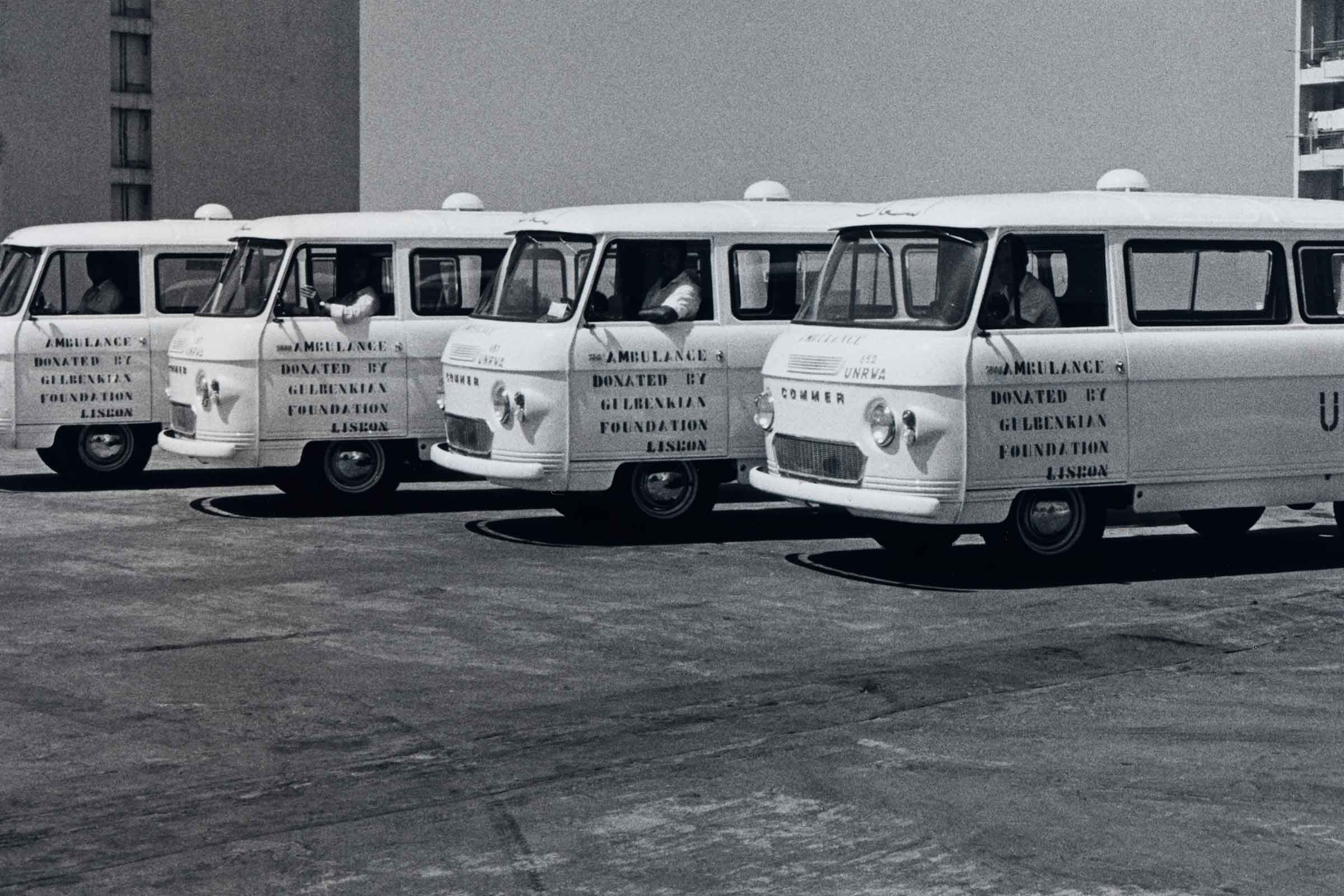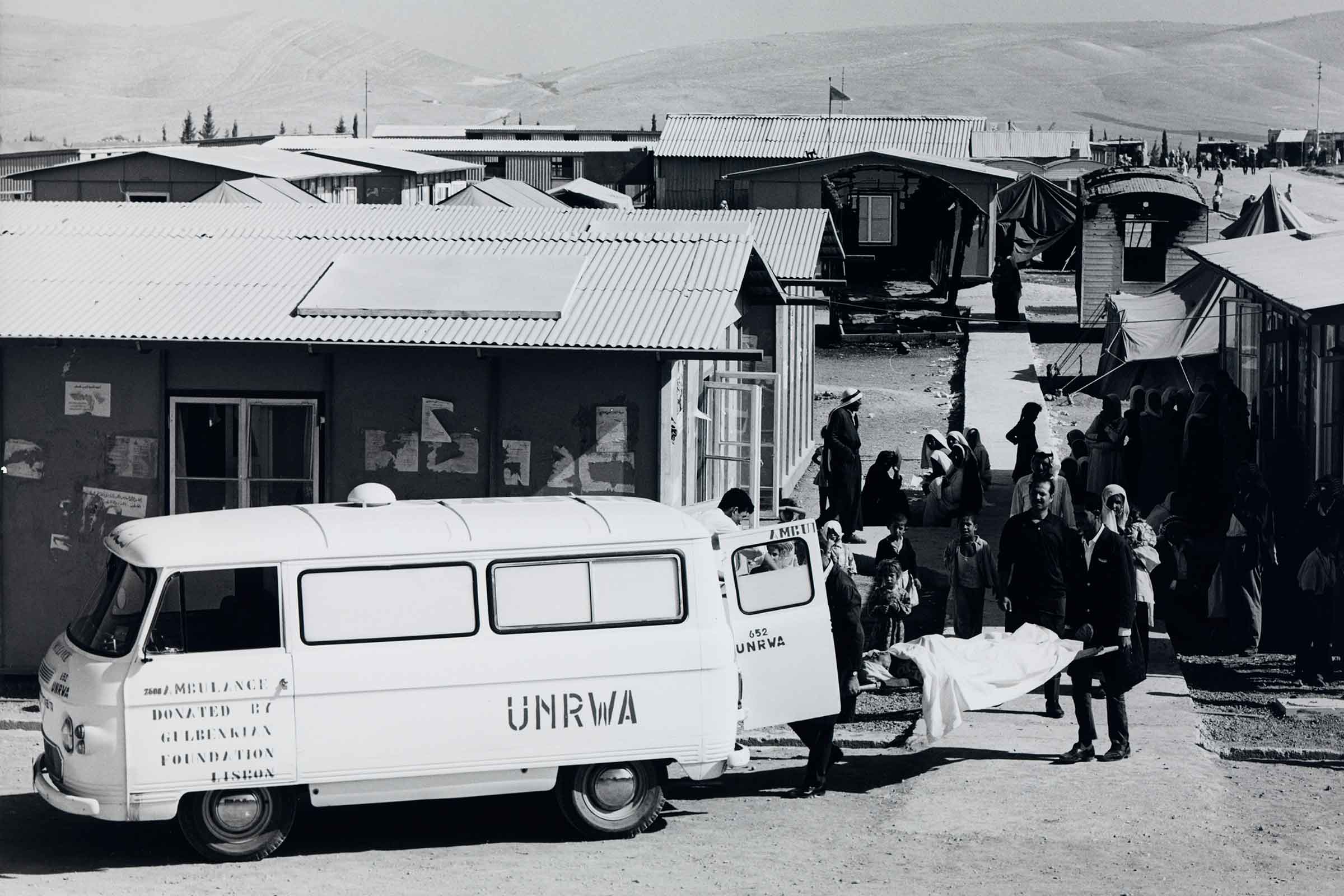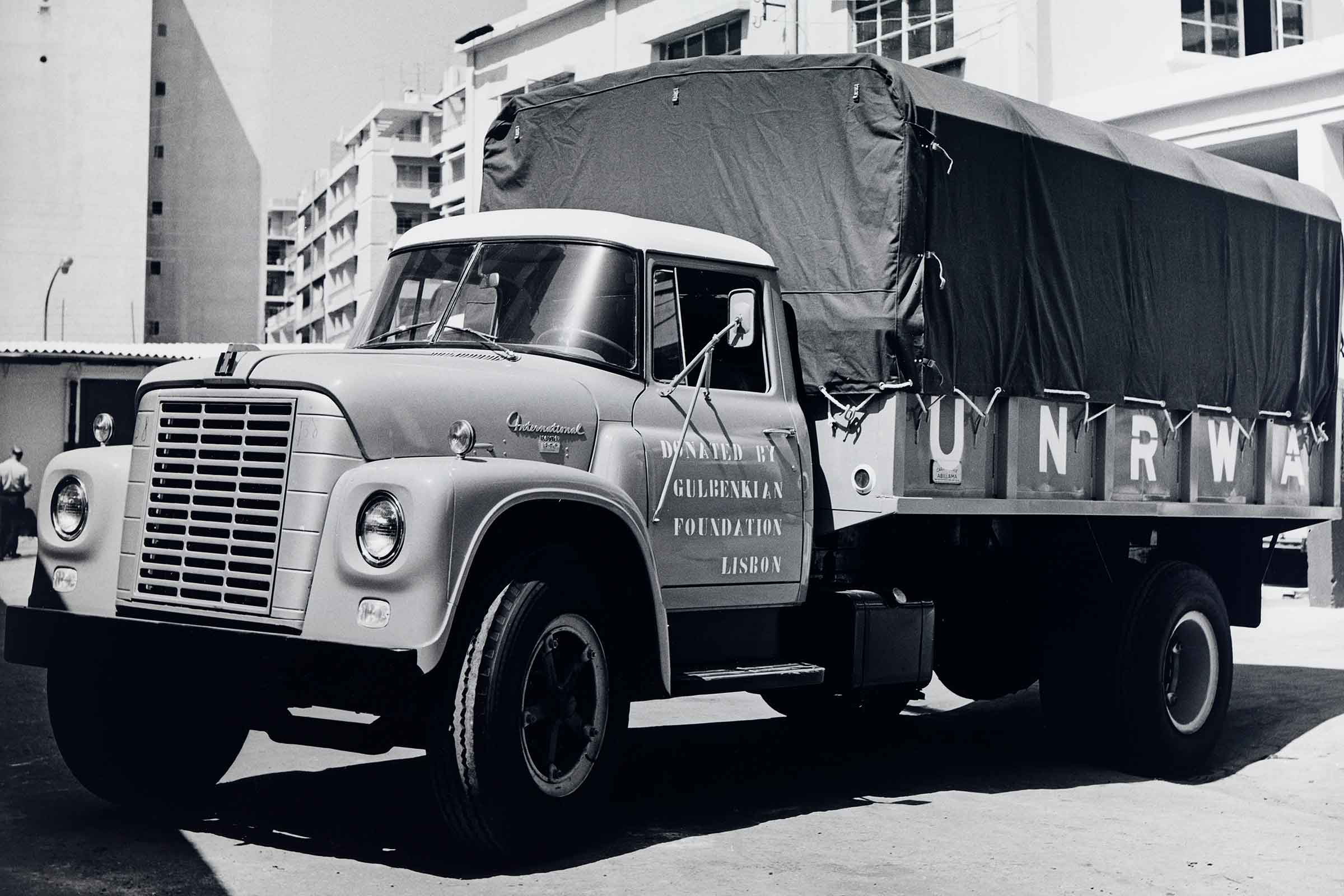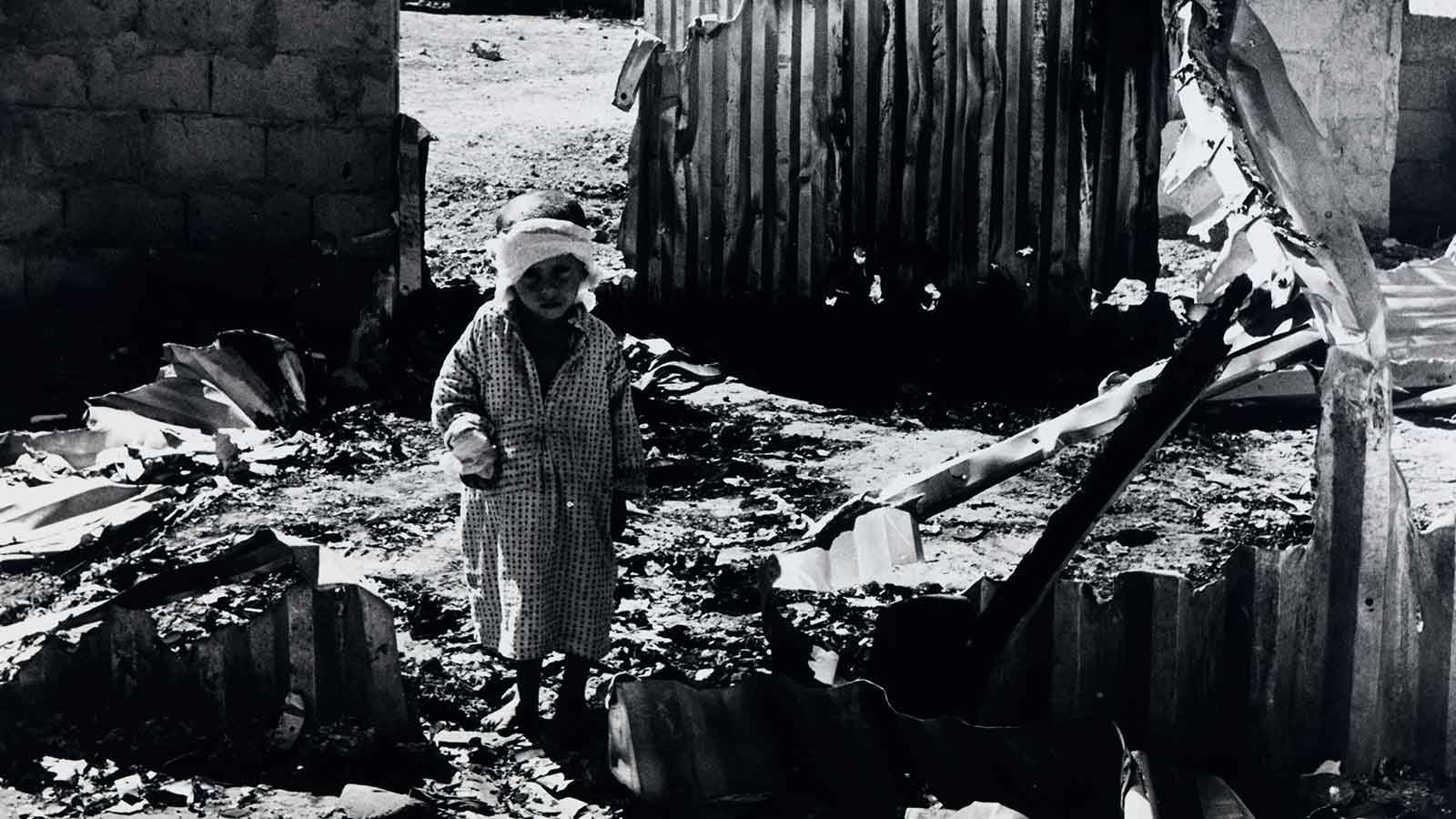Gulbenkian’s support to Palestinian refugees
UNRWA – United Nations Relief and Works Agency for Palestine Refugees in the Near East – (1949) coordinated relief operations, concerting efforts at international level. Until 1967, its services were exclusively for refugees from the part of Palestine that became the State of Israel in 1948, living in Jordan, Lebanon, the Syrian Arab Republic, and Gaza. After June 1967, UNRWA also began providing emergency aid to other displaced persons in the region in absolute need of assistance.


Precisely in 1967, the Calouste Gulbenkian Foundation gives UNRWA a grant of US$50,000 for the purchase of five lorries to transport relief supplies to the refugees. And in 1968, after a further appeal by UNRWA, it allocates a further US$ 10,000 to purchase four ambulances for the relief services for Palestinian Arab refugees in Jordan and Syria. In 1970, this contribution was reinforced by a further subsidy for the purchase of two more ambulances to Beirut, Lebanon.

UNRWA maintains regular correspondence with the Foundation appealing for funds to support these refugees. At the end of November 1970, the Foundation received a selection of photographs showing the damage caused in the UNRWA refugee camps in East Jordan because of fighting in September of that year. The image of a wounded child in front of his burnt down house is striking.
The grants awarded by the Foundation are in line with the statutory purpose “Charity” and are processed through the Middle East Service. This service, originally called the Middle East and Armenian Communities Service, was created in 1956, when the Calouste Gulbenkian Foundation was established. In 1960 it was split into two departments: the Middle East Department, abolished in 1978, and the Armenian Communities Department, which still exists today.
From the Archives
Significant moments in the history of Calouste Gulbenkian and the Gulbenkian Foundation in Portugal and around the world.

